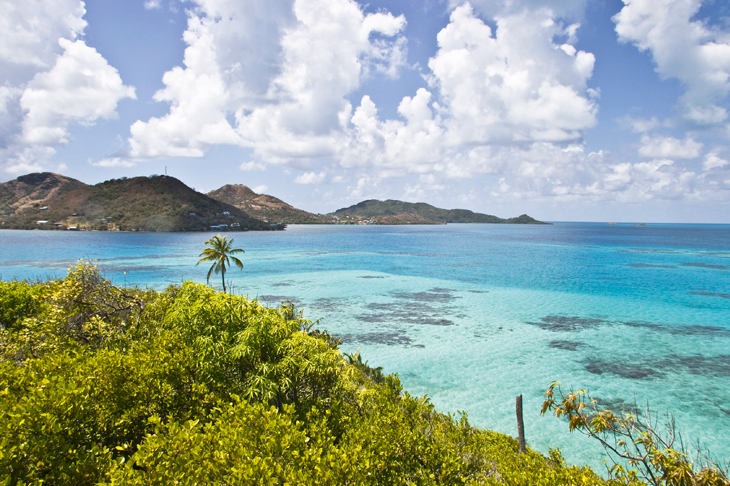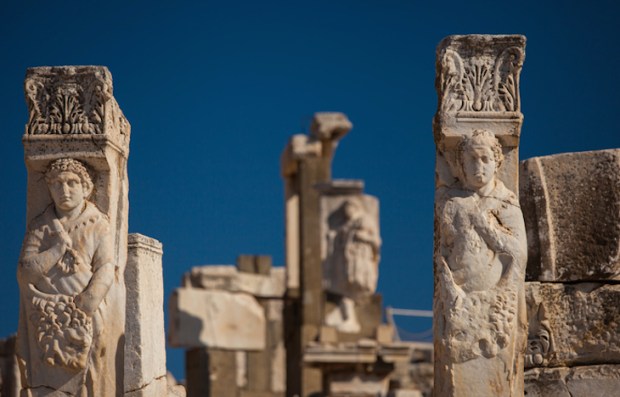
In The Growing Pains of Adrian Mole, Sue Townsend’s hapless teenage diarist, reeling from the news that Argentina has just occupied the Falkland Islands, fails to locate the archipelago on his world map. Eventually, his mother comes to the rescue and discovers it ‘hidden under a crumb of fruitcake’. If general awareness of the Falklands before 1982 was somewhat limited, as Townsend slyly implied, it pales into complete insignificance in comparison with the all-but-forgotten former British territory of Providence. This is a place I have to confess to never having heard of before picking up The Island that Disappeared.
My ignorance is one thing and, according to Tom Feiling, common enough. But he also maintains that it receives not a single mention at the National Maritime Museum in Greenwich either, which, given what we learn in these pages, is extraordinary. For Providence, one of a cluster of three islands lying 500 miles north of Colombia and 70 miles off the Miskito coast of Nicaragua, was among Britain’s first colonies.
Settled a decade after the Mayflower landed at Plymouth, Massachusetts and by passengers travelling on its sister ship the Seaflower, it was deemed to have far superior prospects than its chilly and disease-ridden New England forerunner. A more temperate climate was not the only thing in its favour either. Its backers were again devout Puritans, though unlike the ‘middling sorts’ and lower gentry behind the Massachusetts Bay colony, this scheme was sponsored by grandees: men like Lord Brooke and Lord Saye, whose virulently anti-popish Protestant faith and political ambitions would ultimately lead them and other prominent members of the Providence Island Company to take up arms against the king in the English civil war.
Indeed, in the absence of a parliament, following its dismissal by Charles I in 1629, the company evidently became something of a conduit for dissent among those no longer able to influence affairs of state. The colony, tellingly perhaps, was to be christened ‘New Westminster’. Nevertheless, the king granted the company its original patent, seduced by the pitch that the island was ideally situated ‘to annoy the King of Spain in the Indies’.
The degree to which Charles was willing to annoy the Spanish might have varied with the weather. But the bestowing of royal letters of marque on its mariners, which allowed the free plunder of any rival nations’ vessels in the Caribbean, ensured that the settlement, for all of its high-minded intentions, was established as much on principles of privateering (or piracy) as on puritanism. In fact this experiment in godly living was pitifully short-lived. To modern eyes, it seems fatally morally compromised from the outset by its invidious use of African slave labour.
Quickly beset by internal squabbles over its governance, overrun by privateers, it was seized by the Spanish in 1641, only to be retaken for Britain in 1666 by a gaggle of freebooters, among them Captain Henry Morgan, the marauder and Lieutenant-Governor of Jamaica who went on to sack Panama two years later. With Jamaica’s own star on the rise, Providence was now promptly abandoned and not resettled again until 1789. Feiling speculates that in the interim period it was quite possibly used by passing rovers to maroon disobliging shipmates, much like the fate of poor Ben Gunn in Treasure Island.
Having apparently written much of this in his mother’s house in Penzance, Feiling is alive to the problem that since Stevenson’s time buccaneers — a word that he informs us derives from boucan, a frame used to grill meat in the Caribbean — cut a rather racier Johnny-Depp-shaped jib than stove-hatted Puritans. But he does a good job of elucidating the mindset of a religious movement whose true believers were able to conclude that God might snuff out their children as punishment for ‘unseasonable playing of chess’. Equally, he illustrates, often doggedly, just how much robbery was conducted under the cover of righteousness.
Originally dubbed Santa Catalina by the Spanish, Providence had been renamed in honour of a distinctly Anglo-Puritan notion of God’s beneficent guidance. Feiling notes that the word appears some 55 times in Daniel Defoe’s Robinson Crusoe. Only ‘time’ (294) and ‘island’ (183) occur more often in the dissenter’s novel. Here, too, the concept provides a kind of ballast to the book whenever it drifts off course, as Feiling riffs at length on pirate and pious alike and the region then, now and in between.
As it turns out, modern-day Providence is nearly as oblivious of Britain as most Britons are of it. Feiling is quizzed if ‘England is by America?’ by one local, though almost everyone he meets spins a yarn about Captain Morgan’s ill-gotten treasure lying buried in one of the coves. Quite why no one has yet bothered to dig it up is a question Feiling fails to find an adequate answer to. And he does press them on this, while bemoaning ‘the terrible neglect and indifference the islanders’ have fallen into.
Part of Colombia and, thanks to its offshore location, entrenched in the smuggling side of that nation’s cocaine trade (both topics of the author’s previous two books), contemporary Providence doesn’t exactly lack for rogues among its 5,000-odd population. Nor religious fanatics or church-going hypocrites either, thanks to the efforts of subsequent waves of Baptist, Catholic and Seventh Day Adventist preachers. Ultimately Feiling wants us to reflect on the lasting scars of its colonial heritage and our complicity in some of its present difficulties. His book, then, winds up being that most Puritan of things, a call to conscience.
Got something to add? Join the discussion and comment below.
Get 10 issues for just $10
Subscribe to The Spectator Australia today for the next 10 magazine issues, plus full online access, for just $10.
You might disagree with half of it, but you’ll enjoy reading all of it. Try your first month for free, then just $2 a week for the remainder of your first year.














Comments
Don't miss out
Join the conversation with other Spectator Australia readers. Subscribe to leave a comment.
SUBSCRIBEAlready a subscriber? Log in